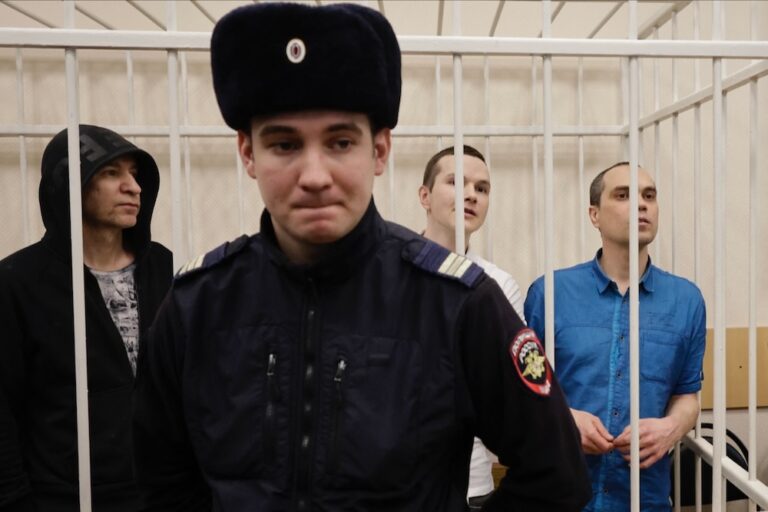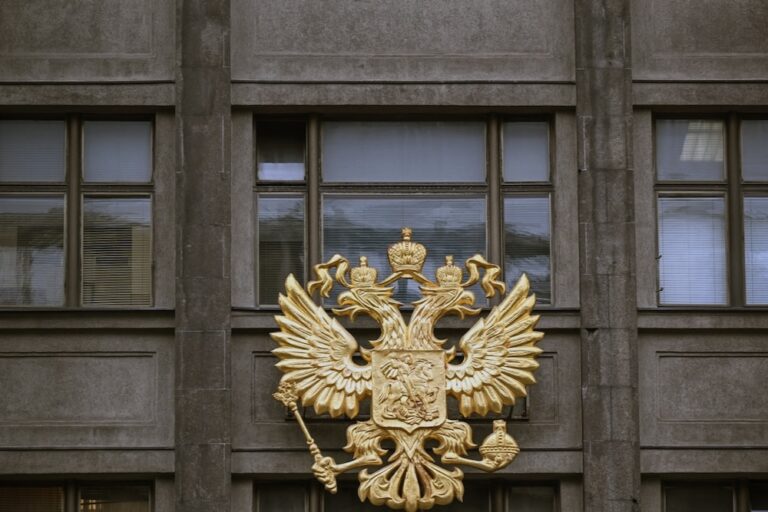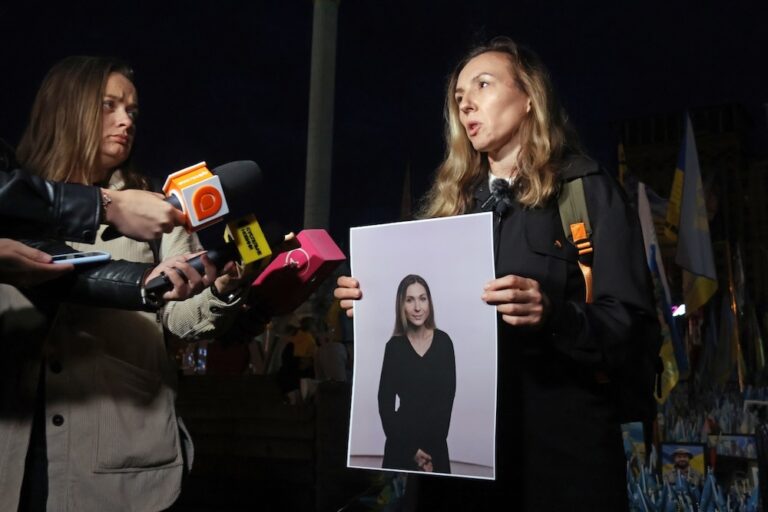(RSF/IFEX) – The following is a 24 August 1999 RSF press release: **Updates IFEX alerts of 23 August, 16 August, 24 June, 20 April, 31 March and 30 March 1999** Russian Caucasus: at least sixteen journalists kidnapped over two-year period The kidnapping of Vladimir Yatsin, a photographer with the Russian press agency Itar Tass, brought […]
(RSF/IFEX) – The following is a 24 August 1999 RSF press release:
**Updates IFEX alerts of 23 August, 16 August, 24 June, 20 April, 31 March
and 30 March 1999**
Russian Caucasus: at least sixteen journalists kidnapped over two-year
period
The kidnapping of Vladimir Yatsin, a photographer with the Russian press
agency Itar Tass, brought to three the number of journalists kidnapped this
year in the Russian Caucasus. At least thirteen of their colleagues have
been kidnapped in the region since 1 January 1997, further to the
Russia-Chechnya conflict. Some of them have been released further to ransom
payments, generally in unclear circumstances. Reporters sans frontières
fears that the increase in kidnappings of journalists as well as the
attitude of local authorities towards the press will lead to a complete news
blackout on the region during the Dagestan conflict.
Vladimir Yatsin, who left Moscow on 20 July, was likely kidnapped and taken
to Chechnya shortly after his arrival in the Nazran region of North Ossetia.
On 23 August, his kidnappers demanded a US$2 million ransom from his family.
On 28 March, another journalist of the Itar Tass agency, Said Issayev, was
kidnapped from his residence in Grozny. He was released at the end of June
in circumstances which remain unclear. He was known for his critical reports
on the Chechen political class. A short time earlier, Anton Marianov, a
journalist of the daily Natcheku, in the Volga region, was released. He had
been detained since the beginning of the year.
Even if Russian authorities have always denied that ransoms were payed, the
lure of a reward seems to be the key motivation of the hostage takers. Elena
Massiouk, a war correspondent of the NTV Russian television station, stated
in May 1998 that “kidnappers of journalists in Chechnya have obtained US$16
million in exchange for releasing hostages in recent years.” She was herself
kidnapped in Chechnya with two of her colleagues between May and August
1997. According to Massiouk, their release was made possible through the
payment of a US$2 million ransom.
Journalists, notably foreigners, no longer dare venture to the Russian
Caucasus, a region which is almost completely under the control of militias
and other armed gangs who kidnap but also murder and censor press
representatives. The current conflict between Russian Federation forces and
Islamist militants led by Chechen warlord Chamil Bassayev, in the Republic
of Dagestan, is taking place in almost complete obscurity. Local and federal
authorities take no steps to ensure the safety of journalists and
transparency. As such, on 12 August, the minister of information of
Dagestan, Zagir Arouhov, strongly recommended that foreign journalists not go
to Dagestan. “We will not be responsible for their security and we will
not provide them with any logistics support,” he explained. For his part, on
18 August, the Russian vice-minister of information, Mikhaïl Seslavinski,
warned media to no longer broadcast the declarations of Chechen Islamist
militants without adding “adequate” commentary.
Since the end of the war in Chechnya in 1996, the authorities of this
secessionist republic have on numerous occasions made plain their animosity
towards foreign media, notably Russian media. “Before, the Chechens needed
journalists in order to denounce the Russians. Today, they do not want the
press to describe the chaos,” explained Elena Massiouk in 1998. Last March,
the Moscow offices of the Itar Tass agency received a bomb threat by
Chechens, who demanded that journalists henceforth refer to their territory
as the “Itchkeria” Republic (“Itchkeria” means Chechen in the local
language). A short time earlier, the republic’s authorities threatened to
withdraw the accreditation of all journalists working in Chechnya if they
did not follow this order. On 25 March 1999, Chechen president Aslan
Mashkadov asked for the suspension of broadcasts of the Moscow television
station NTV after the broadcast of a report on a soldier who has been held
in Chechnya for eight years.
Reporters sans frontières recalls that since the numerous murders and
kidnappings of journalists (some ten reporters were killed between 1994 and
1996 while covering the Russian-Chechen conflict), the Russian Caucasus have
become one of the most dangerous regions in the world for press
representatives. The organisation insists that Russian and local authorities
commit themselves to ending the kidnapping of journalists and take all
necessary measures to ensure that they can get to the region and work freely
while there.


